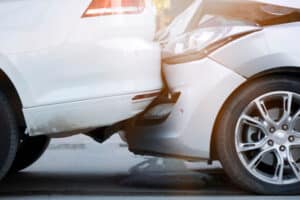When victims of car accidents suffer injuries due to someone else's negligence, they can recover compensation. Accident victims may receive these damages through a settlement – usually with the at-fault driver's insurance company – or litigation in the state court system.
The types and amounts of settlement compensation you receive will depend upon various factors, including the amount of available insurance coverage, the extent of your injuries, the cost of your medical care, and the pain and suffering you endured (you may continue to endure). Therefore, settlement amounts may differ significantly between car accident cases.
An experienced Phoenix car accident lawyer in your area can represent you during settlement negotiations with the insurance company and handle all written and spoken communications. Moreover, suppose the insurance adjuster handling your case fails to make you a reasonable settlement offer. In that case, your lawyer can file a lawsuit and pursue a favorable litigation result in the court system.
Injuries that May Result from Car Crashes Due to Others' Negligence
Car crashes resulting from another driver's negligence can lead to a spectrum of injuries encompassing both physical and mental trauma. One of the most common physical injuries is whiplash, prevalent in rear-end crashes. This soft tissue injury affects the neck and spine, leading to pain, stiffness, and potential long-term discomfort.
Fractures and broken bones are also frequent consequences, particularly in high-impact collisions. The severity can range from minor fractures to more complex breaks, necessitating surgical interventions, casts, or stabilization braces.

Traumatic brain injuries (TBIs) pose another significant threat to victims. The force of impact can lead to concussions or more severe brain injuries, affecting cognitive functions, memory, and overall mental health. These injuries may require extensive medical attention, rehabilitation, and ongoing monitoring for potential long-term effects.
Spinal cord injuries resulting from excessive force on the neck or back can have devastating consequences. Partial or complete paralysis, loss of sensation, and impaired motor function are potential outcomes, necessitating comprehensive medical care, rehabilitation, and significant adjustments to the victim's lifestyle.
Soft tissue injuries, including sprains and strains, can cause lingering pain and hinder mobility. Victims may require physical therapy, medications, and other treatments to alleviate symptoms and regain functionality.
Psychological injuries are also prevalent, with post-traumatic stress disorder (PTSD) being a common aftermath of car crashes. Victims may experience nightmares, flashbacks, anxiety, and a heightened emotional response, necessitating therapeutic interventions such as counseling or psychiatric support.
Depression and anxiety often accompany physical injuries, exacerbating the overall effect on an accident victim's mental health. The stress of dealing with the aftermath, medical treatments, and potential legal proceedings can contribute to these mental health challenges.
In addition to immediate physical injuries, long-term consequences may include chronic pain conditions, joint problems, and an increased susceptibility to future injuries. Victims may also face challenges in resuming their normal activities, affecting their quality of life.
Overall, car crashes resulting from another driver's negligence can lead to a wide array of injuries, encompassing both immediate physical trauma and long-term mental health challenges. The comprehensive effect necessitates a holistic approach to medical care, addressing visible and invisible wounds resulting from the traumatic incident. Legal support becomes crucial in ensuring that victims receive appropriate compensation for their physical and mental suffering, aiding in their journey to recovery.
Negligent Causes of Car Accidents
Negligence is a leading cause of car accidents, with various behaviors contributing to the occurrence of these incidents. Distracted driving, a prevalent negligence, involves texting, talking on the phone, or other distractions while operating a vehicle. Such inattentiveness significantly increases the risk of accidents as drivers fail to fully focus on the road.
Speeding is another common negligent behavior that frequently leads to accidents. Exceeding the speed limit reduces a driver's reaction time, making it more challenging to avoid obstacles or respond to sudden changes in traffic conditions. High speeds also exacerbate the severity of collisions, increasing the likelihood of serious injuries or fatalities.
Reckless driving encompasses a range of dangerous behaviors, including aggressive tailgating, weaving in and out of busy traffic, and ignoring traffic signals. Reckless driving habits significantly risk the driver and others on the road, leading to collisions preventable with responsible driving.
Impaired driving, often due to alcohol or drug use, is a major contributor to car accidents. Intoxicated drivers experience diminished cognitive function, impaired judgment, and reduced motor skills, making them prone to errors and increasing the likelihood of crashes.
Failure to obey traffic signals and signs is another form of negligence that can lead to various accidents. Running red lights, disregarding stop signs, or failing to yield the right-of-way can result in collisions at intersections; the potential for serious injuries increases in this situation.
Rear-end collisions, often resulting from other drivers following too closely or distracted driving, are a specific type of accident associated with negligence. These rear-end collisions frequently result in whiplash injuries and property damage, and they are preventable with proper attention to road conditions and safe following distances.
Side-impact collisions, commonly known as T-bone accidents, often occur when a driver fails to yield at an intersection. Severe injuries can result, especially for occupants on the side of the vehicle that the impact affects.
Negligent behaviors by others are significant contributors to car accidents, leading to various collision types. From distracted driving and speeding to reckless behavior and impaired driving, these actions pose substantial risks on the road.
Factors that May Affect the Size of a Car Accident Settlement or Litigation Result
Various factors that play a role in determining the final compensation can influence the outcome of a car accident settlement or litigation. One crucial aspect is the extent of injuries that the accident victim suffers. Severe injuries often lead to higher settlements, as they may result in substantial medical bills, ongoing treatment, and significant pain and suffering.
Another key factor is liability, as determining who is at fault can heavily affect the final settlement amount. Clear evidence, such as witness statements, traffic camera footage, or police reports, can strengthen a party's case and contribute to a more favorable resolution. Disputes over responsibility may prolong the legal process, potentially affecting the final settlement.

Insurance coverage is also a critical consideration. If the at-fault party has limited insurance or lacks coverage, it can constrain the available funds for compensation. In contrast, if both parties involved have ample insurance coverage, it may facilitate a more substantial settlement.
Do not underestimate the role of legal representation. A skilled and experienced attorney can negotiate effectively on behalf of their client, potentially securing a higher settlement. Additionally, the willingness of the parties to negotiate and reach a settlement out of court can expedite the process and lead to a more satisfactory outcome.
The settlement amount can significantly impact the jurisdiction where the case proceeds. Different regions may have varying legal standards, court procedures, and jury attitudes, which can influence the final result. Understanding and navigating the nuances of the specific jurisdiction is essential for optimizing the chances of a favorable settlement.
Economic factors like living costs and prevailing economic conditions may also indirectly affect settlements. In regions with higher living costs, medical expenses, lost income, and other damages may be appraised at a higher value.
Various factors, such as the extent of injuries, liability, insurance coverage, legal representation, negotiation, jurisdictional considerations, and economic factors, actively shape the size of a car accident settlement or litigation result. A comprehensive understanding of these elements is crucial for parties seeking equitable compensation after a car accident.
How to Decide on Settlement Versus Litigation in a Car Accident Case
When facing the aftermath of a car accident, deciding between settlement and litigation is a critical choice that demands careful consideration. One primary factor to weigh is the strength of your case. If the evidence is clear-cut, establishing liability and supporting your claims, it may be advantageous to pursue a settlement. However, if you dispute liability and your case is strong, opting for litigation may be more appropriate to pursue a fair resolution.
The extent of your injuries is another factor. A settlement may be more appealing if you've already healed from your injuries, as it provides quicker funds to cover immediate expenses. Conversely, if the full extent of your injuries is unclear, opting for litigation allows for a more thorough assessment of long-term medical needs and potential future damages.
Settlements are generally faster than litigation. If practicality and avoiding a prolonged legal battle are priorities, settling may be the preferred choice. While potentially lengthier, litigation may be necessary if achieving a fair resolution demands a thorough examination of the facts and legal arguments.
Assessing the willingness of the opposing party to negotiate is crucial. A settlement can be viable and mutually beneficial if both parties are open to discussion and compromise. However, if the other party is uncooperative or unwilling to cooperate, pursuing litigation may be necessary to assert your legal rights and seek a just outcome.
You should also evaluate the financial aspects, considering insurance coverage, potential legal fees, and the costs associated with litigation. A settlement can provide a more predictable financial outcome, whereas litigation involves greater uncertainty and the potential for increased expenses. Understanding the economic implications is vital for making an informed decision that aligns with your financial considerations.
Ultimately, the decision between settlement and litigation in a car accident case requires a comprehensive assessment of the specific circumstances surrounding the accident, the strength of your case, the extent of injuries, the willingness to negotiate, and the financial implications. Careful deliberation and, if needed, consultation with legal professionals can guide you toward the option that best serves your interests and achieves a just resolution.
Types of Car Accident Damages
In a car accident case, monetary damages address the various losses and hardships the injured party experiences. Medical expenses are a significant component of these damages. This includes the immediate costs of hospitalization, surgeries, medications, ongoing medical treatments, rehabilitation, and potential future medical needs arising from the accident.
Loss of earning capacity is another crucial aspect of compensation. Suppose the accident diminishes the ability to work or pursue one's chosen profession. In that case, the injured party may be eligible for compensation for the long-term impact on their earning potential. This extends beyond immediate lost income to encompass the broader financial consequences of a reduced capacity to earn in the future.

Past and future lost income further contribute to the economic damages available in a car accident case. Calculating past lost income involves assessing the income the injured party might have earned had they not become incapacitated by the accident. Future lost income considers the ongoing effect on earning potential, factoring in potential career advancements and salary increases.
Non-economic damages add a layer of complexity to the compensation available in a car accident case. Pain and suffering, which encompasses physical and emotional distress resulting from the accident, is a significant element. This subjective experience is challenging to quantify, but it acknowledges the profound effect the accident has on the individual's well-being.
Loss of consortium is another non-economic damage that may be available, compensating for the adverse effects of the injury on the injured party's relationships – particularly with a spouse. Compensation for loss of enjoyment of life recognizes the limitations the injury imposes on the injured party's ability to engage in activities and pursuits that once brought joy and fulfillment.
In some cases, punitive damages may also be available to punish the at-fault party for egregious conduct, such as driving under the influence or willful negligence. However, these damages are less common and typically awarded when the other driver's actions are deemed reckless or malicious.
Specific damages in a car accident case extend beyond medical expenses and lost income to encompass loss of earning capacity, past and future lost income, pain and suffering, loss of consortium, loss of enjoyment of life, and, in extraordinary cases, punitive damages. A comprehensive understanding of these damages is crucial for accurately assessing the compensation owed to the injured party and achieving a just resolution in a car accident case.
Speak with a Skilled Car Accident Lawyer in Your Area Today

If you sustained injuries in a car accident resulting from another driver's reckless behavior, an experienced personal injury attorney can handle your case's settlement negotiations or litigation for you. Throughout the settlement negotiation process, your lawyer will aggressively fight for your rights and pursue the maximum compensation you can recover for your injuries.